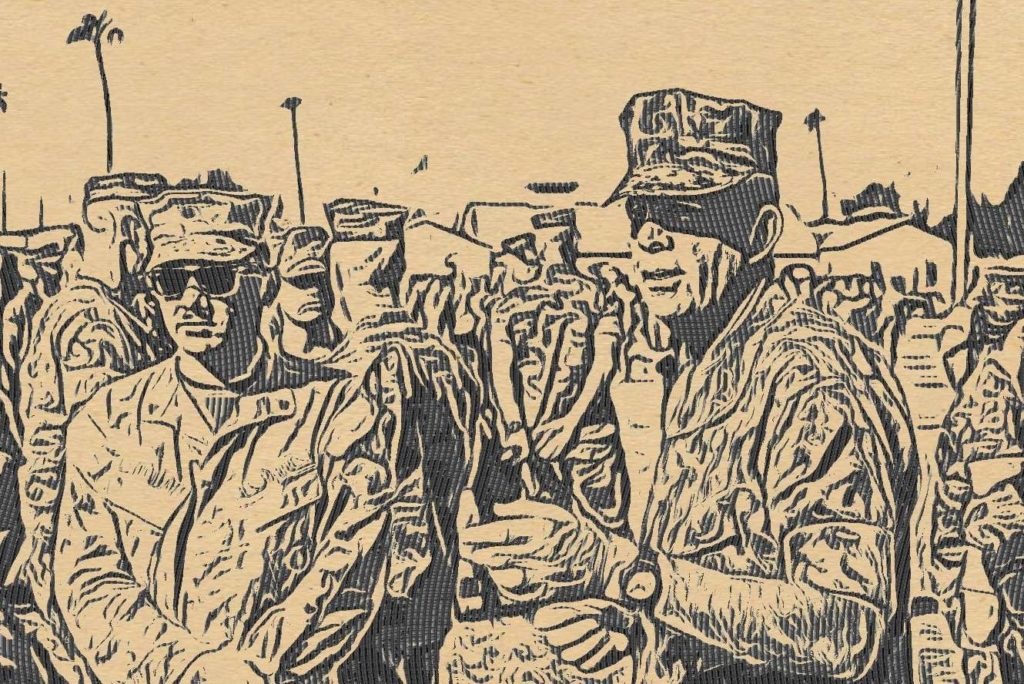Marines re-embracing the logic of lesser-includeds
 Thursday, April 16, 2020 at 7:04PM
Thursday, April 16, 2020 at 7:04PM  Referencing the current Commandant's recent interview with War on the Rocks, summed up nicely here with General David H. Berger stating:
Referencing the current Commandant's recent interview with War on the Rocks, summed up nicely here with General David H. Berger stating:
Our approach to that critique of, “You’re building a very tailored force for the high end, not applicable in the most probably anticipated or most probable kind of scenario”— here’s how I would characterize that. We’re building a force that, in terms of capability, is matched up against a high-end capability. The premise is that if you do that, if you build that kind of a force, then you can use that force anywhere in the world, in any scenario; you can adapt it. But the inverse is not true. If you build a low-end force, or a medium (however you want to characterize it), if you build that capability of a force, you cannot ramp up against a higher end adversary.
Earlier in the interview Berger states that the USMC needed a redesign to correct the overt force "heaviness" it had embraced due to its lengthy ashore ops in Afghanistan and Iraq. Why did it need to change over those years? Because its previous focus on high-end warfare had left it massively unprepared, woefully undertrained, and fatally ill-equipped to fight those smaller wars that had previously been dismissed as "lesser includeds" (the logic being, if you can go big war, you can go small war as a natural subset). It wasn't true back then and it won't be true with this planned redesign.
Simply put, the choice to go big is the choice to neglect and avoid the so-called lesser-includeds.
But Berger's words perfectly sum up how the Marines' clock has been reset on the Big One: build the big force and you can use it small, but you can't go the other way around.
How the general can argue that, when it was so clearly proven in Iraq and Afghanistan to be untrue, reflects the wider strategic realities truly driving this change:
- Under the current administration (and seemingly for future ones) America is now out of the business of running the world/exporting security/fighting small wars/etc. Ain't gonna do them, ain't going to buy for them. We've said that before ... until events changed our minds.
- As a result of this updated version of the Vietnam Syndrome, to sustain (and ideally) grow the Corps, you gotta chase the easiest money, which right now is being placed on China. It is a comforting image, basically recasting it as the equivalent of the old Sov threat with Asia replacing Europe, but it's less driven by China's rise than by our perceived decline. It is fear-based, not ambition-based. It is an overestimation of Chiina and an underestimation of ourselves as a nation.
Notice how the Commandant speaks of "great power competition" but not great-power war per se. That's the second great flaw of this argument: our competition with China ultimately ends up being in the small wars/grey zones/soft power realms -- not in the much-dreamt-of, Michael Bay Transformers-style, high-end war-over-the-rocks-of-the-South-China-Sea scenario. Same is proving true with Russia on Ukraine, Syria, etc.
With this redesign, the Marines retreat back into the bosom of the Navy, which is historically where they embed themselves during downtimes like this.
I get the instinct. I just wish they'd come up with a new rationale rather than retreading the past. Updating the 1980s Maritime Strategy for the PRC strikes me as anything but innovation, as the Marines won't be any more meaningful to that scenario than they would have been in that previously imagined WWIII.
 Thomas P.M. Barnett Comments Off |
Thomas P.M. Barnett Comments Off | 








